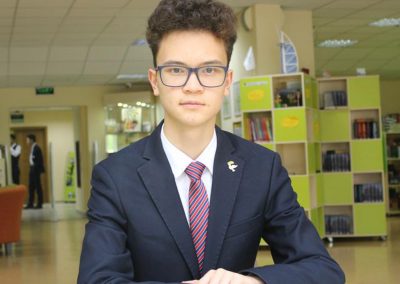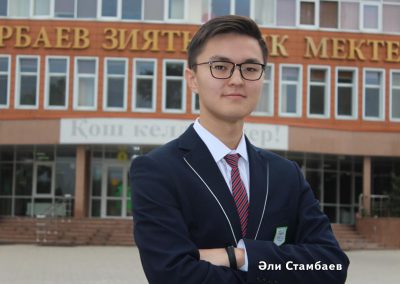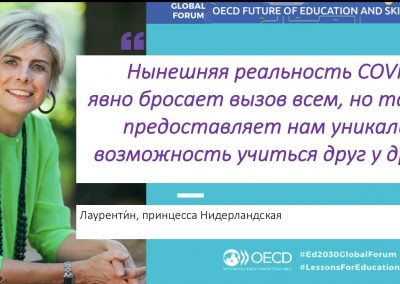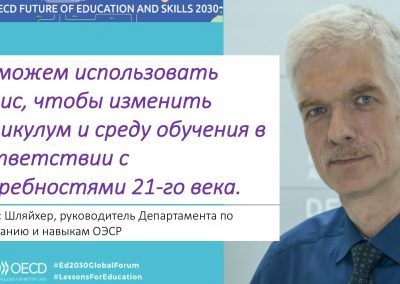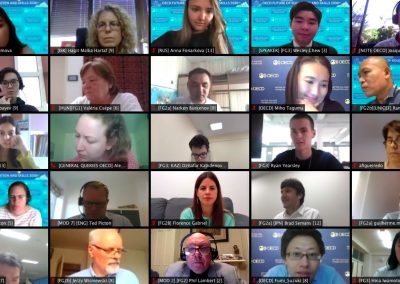Global Forum of OECD Education and Skills 2030 First Virtual Meeting
The “Nazarbayev Intellectual Schools” AEO (hereinafter – NIS) continues its work in the OECD Future of Education and Skills 2030 project as a national coordinator for Kazakhstan.
In May, the OECD organised the first virtual meeting of the Global Forum of Education and Skills 2030 (hereinafter – the Forum). The Forum was attended by the NIS representatives, namely, Zhanar Abdildina, Zarina Khamidulina, Aizhan Ramazanova, Nurgali Yelshibekov, director of the NIS ChB Petropavlovsk, Narken Burkenov, mathematics teacher of the NIS PhM Semey. Also, the Forum was attended by Dzhafar Kabidenov, Ardana Izimova and Ali Stambayev, 10 and 12 grade students of the Almaty NIS PhM. The Forum brought together over 300 representatives from around the world.
The Forum aimed to provide a space for sharing challenges, and an opportunity to formulate possible solutions to overcome the challenges in curriculum delivery during the COVID-19 pandemic, and to explore the experience of other countries. The meeting involved three focus groups (FG), with FG1 – policy makers, representatives of government bodies of various countries, FG2 – teachers and teacher educators, and FG3 – school and university students from around the world.
For two days, groups of international experts worked on ZOOM. Particular attention was paid to opinions and learning experience of students from all over the world. Our students were members to different focus groups, so they were able to work with students from Brazil, Germany, South Korea; teachers from Japan, UK, USA, China; policy makers from the USA, Denmark, and Princess Laurentien of the Netherlands.
The moderators of the groups provided the NIS students with the opportunity to speak on behalf of their groups and present the results at the final session.
One of the key ideas proposed by Dzhafar was the idea of creating a group of students in the form of student self-government so that they could work together with teachers and school administration to ensure smooth alignment of the learning process in the current tough period. Ardana emphasised the importance of student motivation. She suggested conducting surveys of students to identify factors affecting their motivation. International expert Peeter Mehisto cited Ardana’s ideas in his presentation.
In the group Ali was a member to, a key topic for discussion was the issue of student anxiety related to exams and progression to higher education in the current period. Uncertainty was reported to be the main source of this problem, and therefore, one of the main solutions proposed was ensuring proper communication. Ali suggested focusing on establishing relations between schools (students, teachers, parents) and stakeholders who make key decisions – universities, ministries, and examination bodies.
In conclusion, the students raised the issue of revising the current exam system used to assess students’ abilities, which was much thought provoking for the majority of Forum participants.
The second virtual meeting of the OECD Education and Skills 2030 is scheduled for this autumn.
